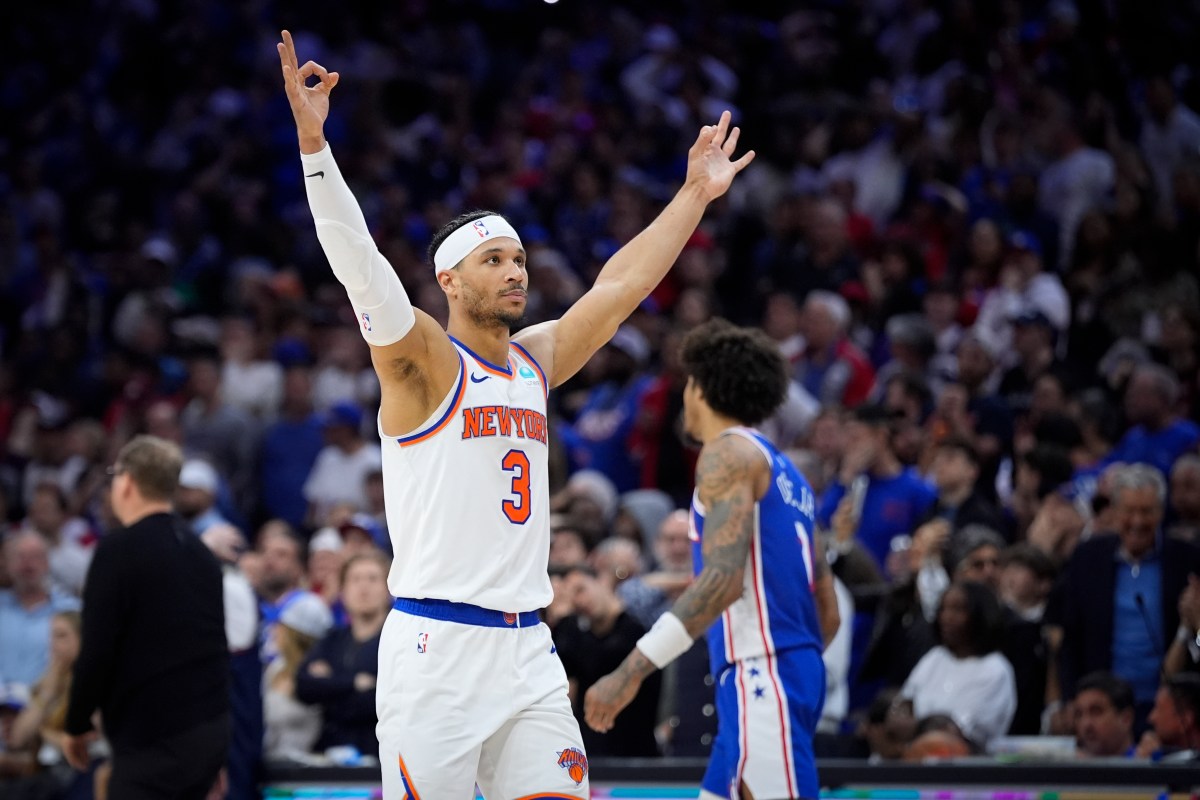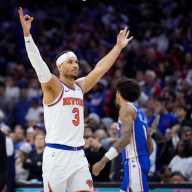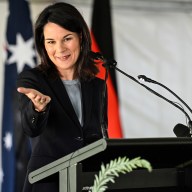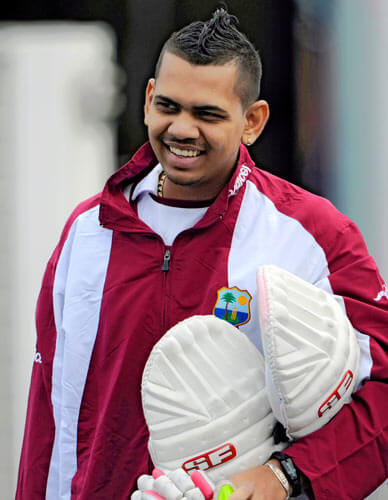Chiwetel Ejiofor’s first big movie after “12 Years a Slave” isn’t a blockbuster, though he’d done plenty of those prior. (He’s in “Children of Men,” “American Gangster” and “2012,” as well as “Love Actually.”) It’s a film so small it only has three actors. “Z for Zachariah” is a post-apocalyptic film that’s really an intimate study of human relationships, with Ejiofor’s Loomis a scientist who’s become one of the only apparent survivors after some global pandemic. He happens upon Ann (Margot Robbie), and the two try to survive, even as he shoots down her advances for the greater good. Their cozy but strained relationship is further stressed when a third wheel arrives in the form of the cocksure Caleb, played by Chris Pine. Ejiofor and director Craig Zobel, who was following up the controversial “Compliance,” spoke to Metro about avoiding genre cliches and creating a space for actors to explore fraught interactions. This is a movie about the post-apocalypse, but it’s really more of a character study. You could even lose the business about humankind being mostly wiped out and it would work as a drama. Craig Zobel: I saw the post-apocalypse thing as a different way into doing a desert island story — a way for other people to not be around so you could just have a microcosm to just study relationships. It seems like the screenplay had a lot of gaps for actors to bring their thing. Chiwetel Ejiofor: To fill in by character, yeah. I was always intrigued by the idea of two-handers and three-handers, and dealing with interpersonal relationships and politics. This offers that, because you have to produce all the dramatic tension you’d have in a bigger film, but it’s just through the nature of personalities, in an understated way. That was for me the most exciting entrypoint to it all. In order to achieve that it requires an honesty. You have to, in terms of acting, bring a perspective in which you would find yourself given these circumstances. Which is quite hard, quite painful. All the characters are going through quite a lot of suffering in their own way. RELATED: “Z for Zachariah” is better at drama than at post-apocalypse Did the fact that there are only three actors, and for most of the time only two, make it feel like boot camp? Ejiofor: It took a bit of time. Chris and I met a couple times in London. But not much. I didn’t know Margot at all. It was possible to dive into that kind of full-on relationship without having known each other. But that’s useful, because that’s what’s happening in the story. Zobel: It was certainly not a designed thing. It was a schedule thing. But the fact that Chiwetel and Margot hadn’t met coming into this helped us. We shot in order and Chris was on another job prior to this, so he came in a couple weeks into our shoot. The natural of the shooting paralleled the way the story worked. By the time [Pine showed up] Margot and Chiwetel were firing on all cylinders. Then a new person came in and disrupted it. [Laughs] Which was great. A lot of the first hour traces Loomis and Ann’s discomfort with wanting to act on their hormones while knowing they have to maintain a livable situation. There’s a feeling they should fall in love because they may be the last two people on earth. Ejiofor: She is quite open to all that, and he is much more reserved about it, initially. But he is older. There is a slightly more paternalistic nature to his approach. But he is terrified of getting into a bad relationship with the last woman on earth. [Laughs] You’d have to be very, very careful, tread lightly, because the last thing you want is stony silences and slammed doors forever. [Laughs] With all that cerebral thinking, with all those delicate approaches, it’s for nothing when Caleb arrives. It all suddenly is a terribly bad idea [that he rebuffed her]. Those dynamics are fascinating to me, and the fact that Caleb is completely front-footed — he’s not worried if he’s in a bad relationship. He would be like, “Well, if it goes bad I’ll take off.” Caleb is such an alpha male character that, in this situation, even if you were the least macho man, like Loomis is, you would still feel threatened and insecure. Ejiofor: I think [Loomis] tries to out-manipulate him. He thinks he can use intelligence to dominate. And in the end he can’t. At the end he’s totally out-maneuvered by Caleb, who’s not even determined to try and out-maneuver him. Caleb ends up exposing certain advantages he has, first of all, with the religious connection he has with Ann. That gives him a certain advantage, which he ruthlessly pushes. John is slightly disadvantaged by an insecurity by being suddenly in a minority racially. His actions become more and more desperate. Zobel: I think Loomis thought we were past these kinds of guys being in the world, and here we go again. [Laughs] Caleb thinks, “Oh, weird, you have weird issues with me?” That becomes a button that he’s like, “Oh, I can push this? Cool!” Ejiofor: What would drive you mad in the end would having somebody like Caleb, who just does not seem threatened by you. To have somebody who’s totally not freaked out by you at all is completely crushing. That’s why I think he unravels. Caleb is the last person on earth he wants to encounter, because Caleb doesn’t give a s— about anything. Like “Compliance,” this becomes to be about how people can rationalize actions that are bad or bad for them. In this case it’s about Loomis gradually rationalizing doing things that he would never have previously thought himself capable of. Ejiofor: He would never in a million years be the person he comes. The gap between the person that he is in terms of action and the person he think he is just becomes wider and wider.
Zobel: In our modern structure, none of us could push anyone off the edge of a waterfall, or something like that, because we would get in trouble. There’s no accountability for anything that happens, so, in essence, you have permission in a way. It becomes about how you inside your head make sure that you’re cool with it. Ejiofor: I suppose he’ll find himself in that church for the first time. [Laughs]
RELATED: Alex Ross Perry’s “Queen of Earth” is an uneasy study of Elisabeth Moss losing it Loomis is either an agnostic or atheist, but that makes him think he’ll never do something irrational.
Ejiofor: I think he’s an atheist. And that’s one of the things he can’t shake when they’re combination of religion is outmaneuvering him. He’s also stuck in some ways. He can’t be open to any kind of spiritual understanding, which actually would have been useful in conversing with Ann. But Loomis is a bit closed. But he does try and make an effort to at least tolerate Ann’s religion. In a lot of movies it would be a black-and-white struggle for supremacy. Ejiofor: When it’s just the two of them, it’s possible to have [that stalemate]. The balance doesn’t swing in either direction. It’s like, “You believe this, I believe this, so let’s carry on with our lives. It’s going to be fun.” Zobel: That’s how I think that conversation happens in real life. With your aunt or cousin or whoever may have a different view from you, you acknowledge it and move on. I feel like only in movies does that come to blows. [Laughs]
Chiwetel Ejiofor and Craig Zobel on the brittle humanity of ‘Z for Zachariah’
Follow Matt Prigge on Twitter @mattprigge


















